We learnt recently that E.V. Ernie Mitchell, Scottish star of the 1950’s has passed away. As a tribute to him we thought we would re-run the interview he gave us last year where he told us about being the first man in the country to break the two-hour mark for 50 miles, virtually owning the pursuit crown and motor pacing behind his brother’s bus …
* * *
Ernie Mitchell – Scottish Star of the 50’s
by Ed Hood. First published October 22, 2013.
Sometimes it’s strange how you pick up on a story; take this one. My friend, former colleague and owner of a rather nice Look, Kenny Burrell sent me a text about a gentleman he’d been chatting to – a certain Mr Ernie Mitchell by name.
“The first man to break two hours for a 50 mile TT in Scotland, back in the 1950’s” said Ken.
“I’ll check that out, Ken” I texted back.
And that was the first step on my journey to E.V.’s (although he prefers Ernie, these days) front door.
Ernie Mitchell was a man well ahead of his time; one of the first to drive to races and not ride out on the morning; he trained twice each day, a la Ekimov in his Russian pursuit team days; his fixed wheel track iron was built super-tight with sprinter’s rake on the forks to ‘keep it alive’ – not with the ‘lazy’ rake and big clearances of his contemporaries – a la Alf Engers.
And also, just like Alf he risked riding the lightest of track tubulars on the road in search of speed.
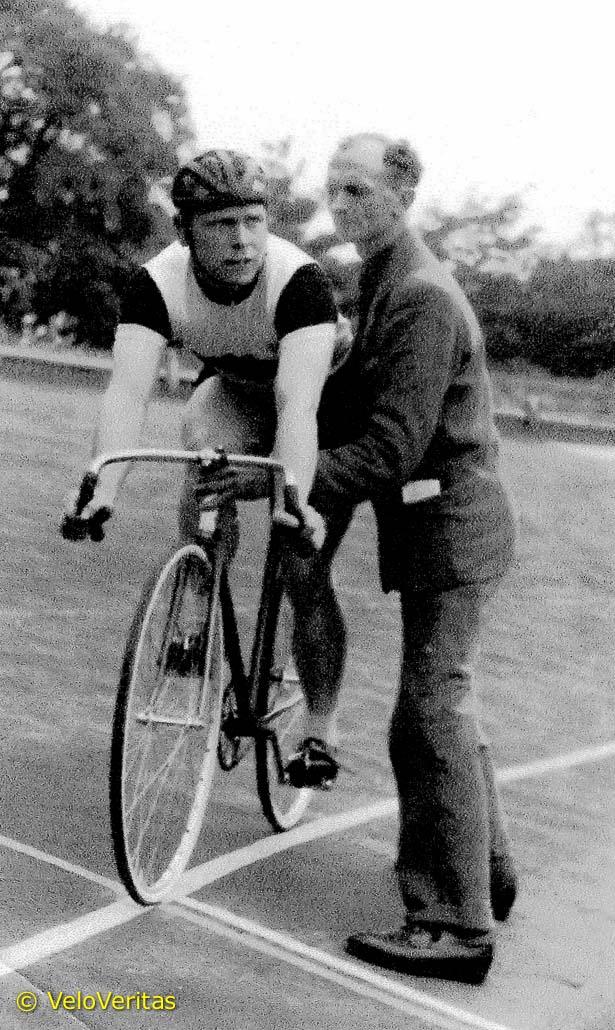
He was one of the major figures in Scottish track racing and time trials during the 50’s setting records at 25, 30 and 50 miles; winning the 25, 50 and 12 hour championships and making the pursuit his own – not to mention a sprint title along the way.
As part of the preparation for a surprise 80th birthday party for her father, Ernie’s daughter Diane Walker spend a lot of time researching his career.
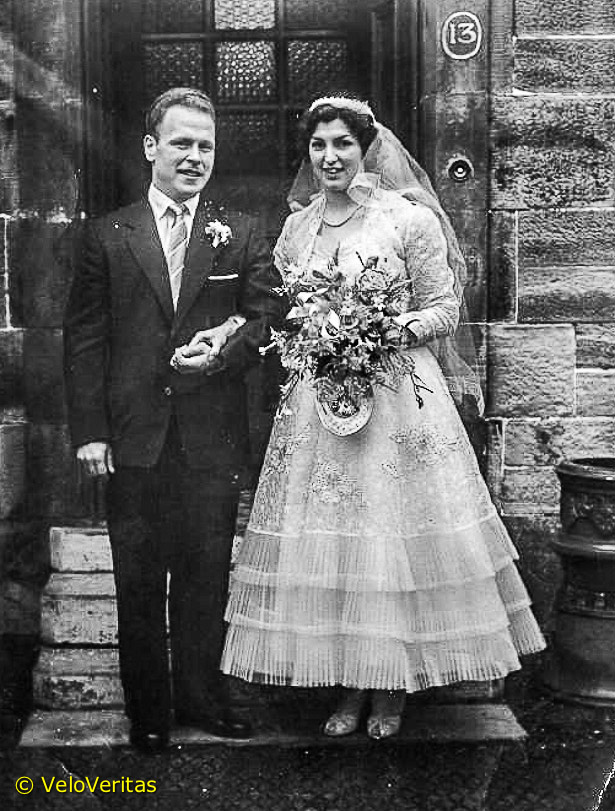
This list of Ernie’s career highlights which Diane came up with gives some idea of his talent and versatility:
The first question we had to ask was an obvious one; how did he get into cycling?
“My father was Italian, Del Vecchio was the name he was born with; he came across to Scotland with his family when he was very young.
“As a young man, he’d go out for a ride with his brother and cousin. At that time he wasn’t in a club or racing; just out for a run – but they’d latch on to the club runs of the day on the way home.
“But when the big habble started at the end (that’s ‘simulated race’ for our readers not familiar with West Coast bicycling parlance) they’d struggle.
“He remembered one of the hardest habblers announcing; ‘well, that’s those Italian chaps undone!’”
(That’s not how Ernie Mitchell tells it – but this is a family site so we’ll stick with that version.)
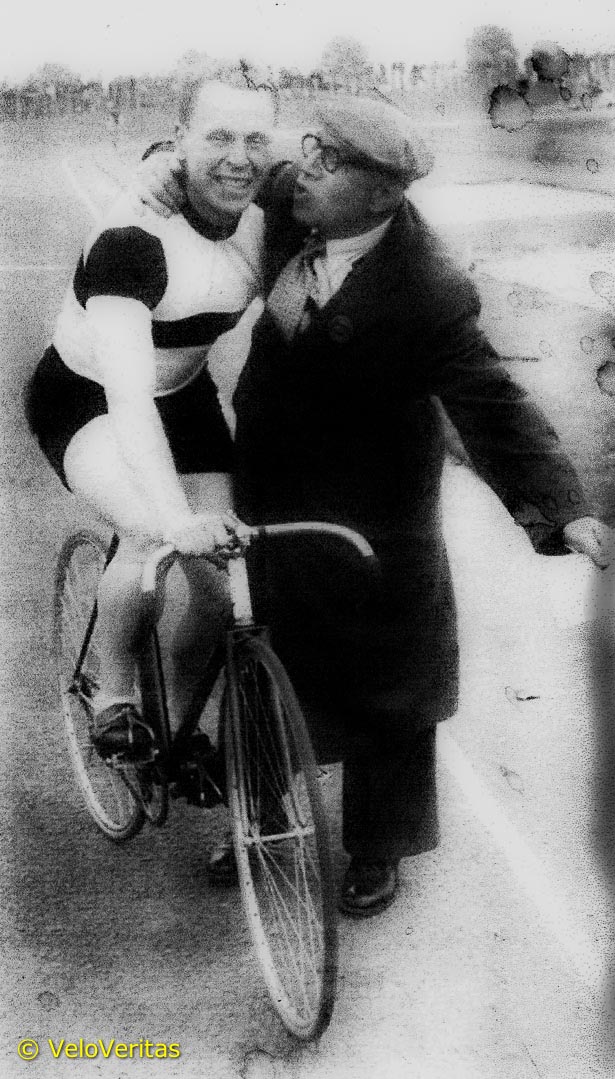
“My father didn’t like to be put down like that so he started to train and race; initially with the Douglas CC but he was a founding member of the Glasgow Wheelers and went on to race very successfully in the 1930’s.
“He didn’t actually want me to get into cycle sport – he wanted me to be a swimmer.
“He always said that cycling had given him his heart problems – but I said to him that it was because he’d pushed himself too hard in races without real proper preparation.”
Who were your role models – Coppi? Bartali?
“No!
“I wasn’t into the massed start side of things, my dad had been a time trial champion and he coached me – he was all the role model I needed.”
Tell us about your training.
“If I was training for 25’s I’d do 20 miles twice a day with maybe another 10 miles to get the start point of my efforts. I’d jump in behind buses on these runs and that really helped with leg speed.
“If I was training for the 50 then it was 40 miles twice each day – up to St. Ninians at Stirling – but by the time I got to my start points and back I’d be doing around 100 miles per day – all on 72” fixed.
“People used to say I trained like a professional – but I’d simply reply; ‘what’s to stop you doing it, too?’ I still had to put in a shift at my father’s hairdresser’s shop in Glasgow, six days a week.
“People would ask if they could come on training runs with me, I’d say; ‘sure!’ I wanted them to see that I wasn’t up to anything except hard work.”
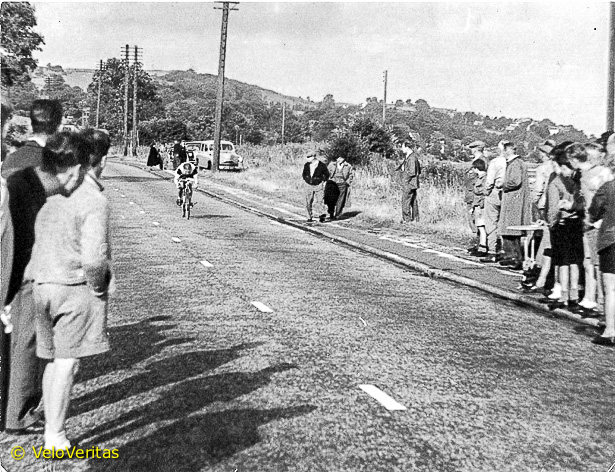
I’ve heard that you weren’t so much into the social aspect of the sport as your contemporaries?
“Back then a lot of the time the thing was that you’d ride to the race location, camp out, ride the race and then go on the club run.
“With us having the car I didn’t have to do that and my attitude was that once you’d done the race then you went home – it wasn’t anti-social, just workmanlike.”
Which clubs were you in?
“Originally the Belle Star CC from Scotstoun then I was in the Glasgow United for a short spell before joining the Glasgow Suburban – it was a bigger club and there was much more opportunity to win team prizes.
“Albeit there were no cash prizes back then, it was all trophies, canteens of cutlery and the like.”
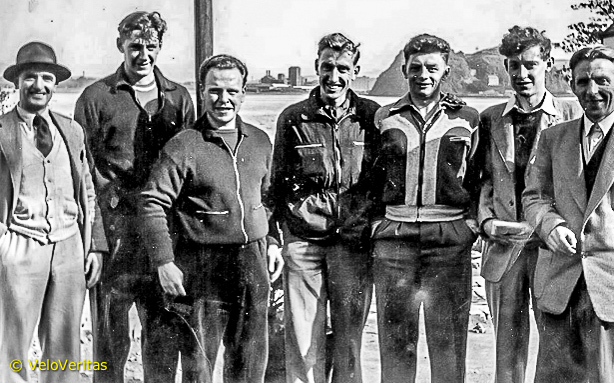
Tell us about your equipment.
“I rode a Flying Scot, built by Rattray’s of Glasgow – I got a discount on my frames but it wasn’t like I was treated like a pro and rode their frames without paying for them.
“I designed my own frames, the normal fork rake back then was around three to four inches, I didn’t agree with that and had my machines built with a short, sprinter’s fork rake and very close clearances.
“I wanted the bike short, stiff, compact, responsive. Initially I rode Dunlop Number Three tubulars but eventually went down to silk Number Ones – they were very light but if you wanted speed then you had to take the risk.
“I raced on Chater Lea cranks with an 82” fixed gear irrespective if it was a ‘10’ or a 12 hour – with all my training on 72” fixed.”
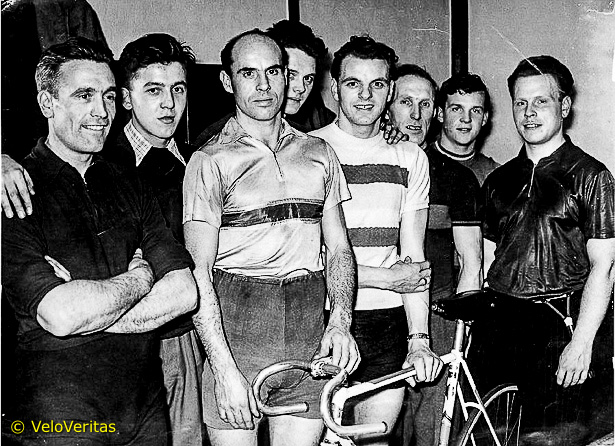
What about diet?
“My dad was Italian so there was a lot of macaroni and spaghetti – my mother was a good cook.
“I was conscious about what I ate – but perhaps not as much as they are today.”
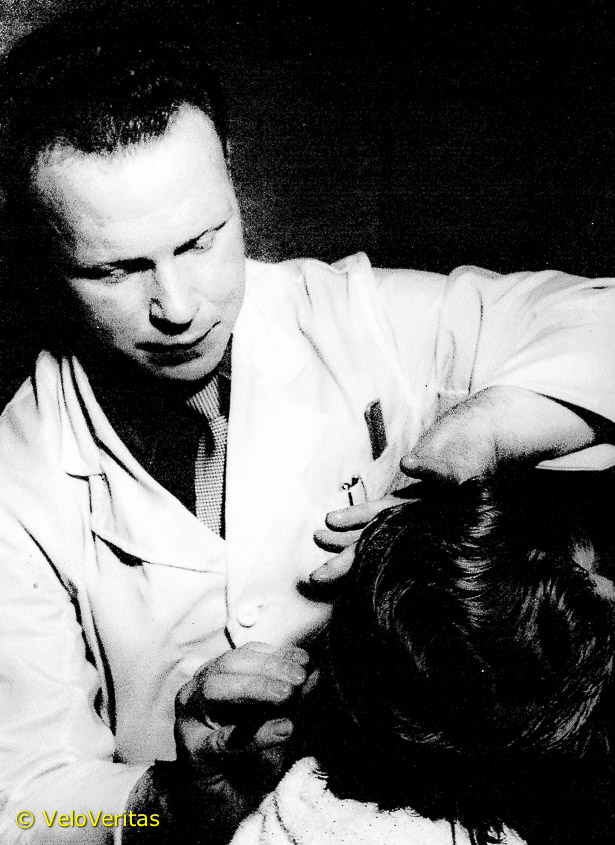
What were your personal bests?
“I got down to a 57 for ‘25’ and was the first rider under two hours in Scotland for a ‘50’ – I broke the record three times.
“My ‘100’ time was my weakest – a 4:17 – but to be honest I preferred the shorter distances, although I did a good 12 hour to win the BAR, 260 miles; the only one I ever rode.
“In that 12 hour my father took an official in the car with him when he was feeding me just so that here could be no accusations of anything untoward going on.
“The BAR win took me into the top 12 in the British competition and I went to the prize presentation in the Albert Hall in London.
“But my father and I preferred me to be in pursuit of speed – 100’s and 12 hours weren’t good for your speed. I think we were among the first to drive to races on the morning and not just ride out to local events.
“I’d race in Fife, Perth, Dundee and I think the folks there appreciated me making the effort to come and compete on their roads.”
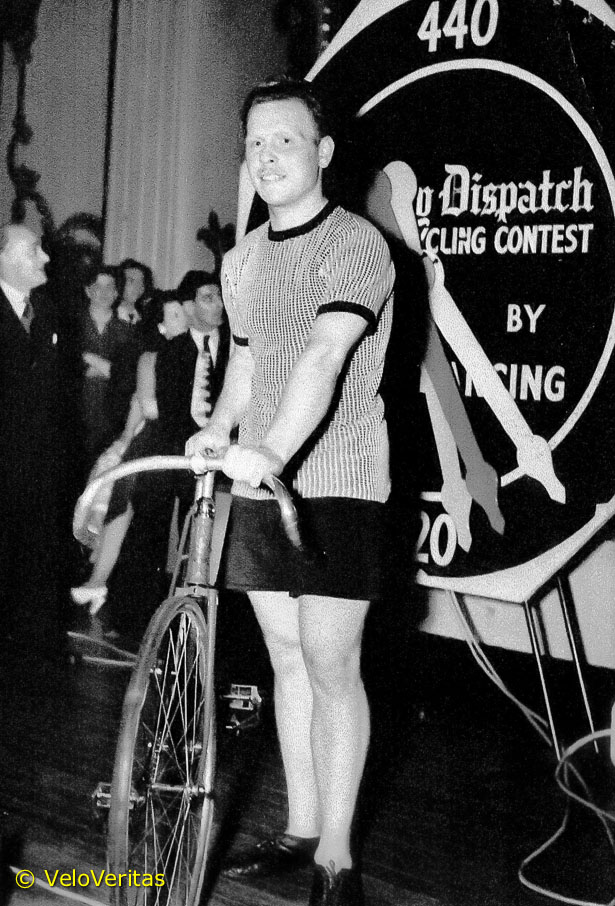
And you were pursuit king of Scotland.
“I did some specific training for that – my brother worked as a driver for Alexander’s Buses and if he passed me then he’s let me tuck in and do some motor pacing.
“I never raced bunched events on the track – just the pursuit.”
You rode that discipline in the Commonwealth Games?
“I felt I should have been selected for Vancouver in 1954 but wasn’t – I selected for Cardiff in 1958 but my star was on the wane by then and I didn’t perform.”
You had 21 wins straight in 1954.
“That was where having the car was very useful; if there weren’t suitable events in the West then you could drive to Mid Scotland or Fife and compete.”
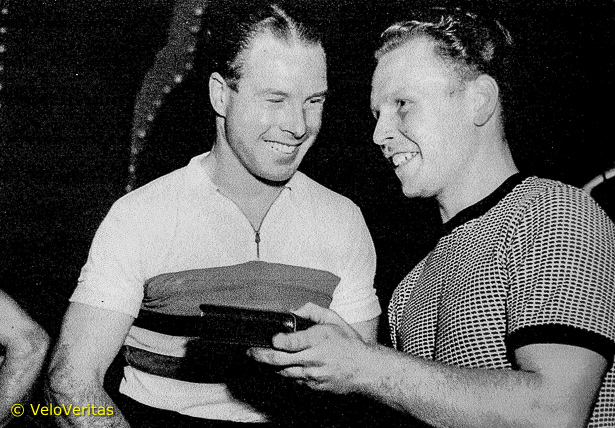
The ride you’re most proud of?
“It’s a long time ago now so hard to have one stand out in my memory but 1957 was a special year with the ‘25’ and ‘30’ record, the ‘50’ and ’12, championships, the BAR plus the pursuit and team pursuit championships.”
Do you still keep in touch with the sport?
“I don’t go out of my way to keep in touch but if it’s on the TV then I’ll always make a point of watching.”
Regrets?
“None! – I had a great career.”
With thanks to Ernie Mitchell, Diane Walker and Alex Moyes for their time, hospitality and help with excellent archive materials.



